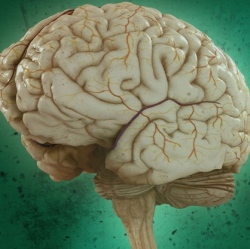
A new cocktail of drugs could kill tumours in a common childhood brain cancer, a new study found. Around 400 children in the UK develop brain tumours each year with boys affected slightly more often than girls. Medulloblastomas are the most common type of malignant tumour developing in the cerebellum.
The tumours are most commonly diagnosed at around five years old and treatments can include surgery, radiotherapy and chemotherapy. While treatments are improving, success rates still lag behind other childhood cancers, particularly with an aggressive form of the cancer. Only two fifths will survive the most aggressive form compared to over four fifths in less severe forms.
US researchers identified a new combination therapy for the most aggressive form of medulloblastoma, a fast growing type of paediatric brain cancer. In lab tests the drugs kill cancer cells without being toxic to normal cells and researchers hope to start clinical trials.
In general, clinical trials for medulloblastoma are challenging because of the limited number of patients. Moreover, given the variability of the disease, most therapies will only work on a subset of patients. Figuring out which patients will respond to which therapies is a major goal of research in the field.
If we can tailor therapies based on the genetic make up of the tumour, a strategy commonly referred to as personalised medicine – this could have an enormous impact on patients with this disease.
A new study published in Cancer Cell demonstrated that the combination of two drugs, histone deacetylase inhibitors (HDACIs) and phosphatidylinositol 3-kinase inhibitors (PI3KIs), potently kill mouse and human medulloblastoma cells with minimal toxicity to normal cells.
